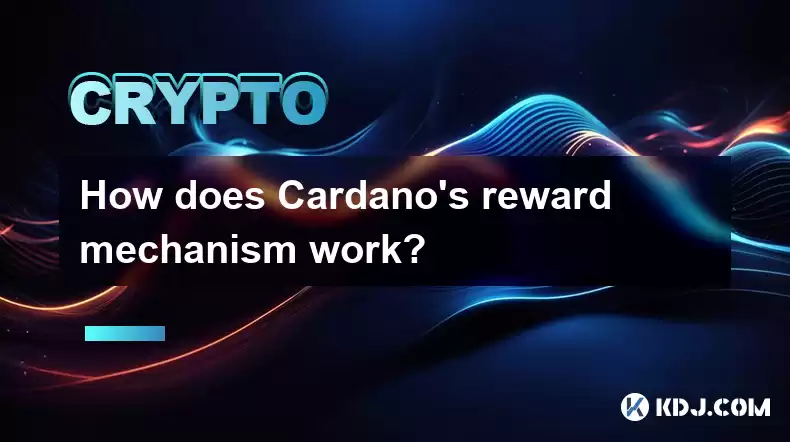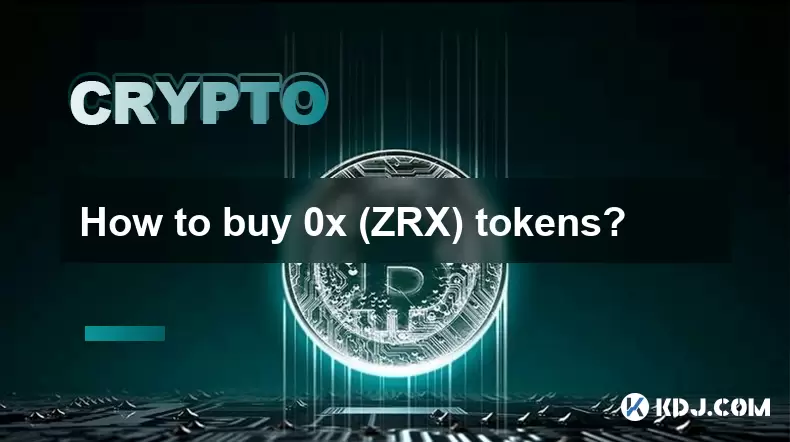-
 Bitcoin
Bitcoin $117500
2.15% -
 Ethereum
Ethereum $3911
6.19% -
 XRP
XRP $3.316
10.79% -
 Tether USDt
Tether USDt $1.000
0.01% -
 BNB
BNB $787.2
2.24% -
 Solana
Solana $175.2
4.15% -
 USDC
USDC $0.9999
0.00% -
 Dogecoin
Dogecoin $0.2225
8.40% -
 TRON
TRON $0.3383
0.28% -
 Cardano
Cardano $0.7868
6.02% -
 Stellar
Stellar $0.4382
9.34% -
 Hyperliquid
Hyperliquid $40.92
7.56% -
 Sui
Sui $3.764
7.63% -
 Chainlink
Chainlink $18.48
10.66% -
 Bitcoin Cash
Bitcoin Cash $582.1
1.88% -
 Hedera
Hedera $0.2601
6.30% -
 Avalanche
Avalanche $23.33
4.94% -
 Ethena USDe
Ethena USDe $1.001
0.02% -
 Litecoin
Litecoin $122.3
2.04% -
 UNUS SED LEO
UNUS SED LEO $8.969
-0.27% -
 Toncoin
Toncoin $3.339
0.86% -
 Shiba Inu
Shiba Inu $0.00001287
4.30% -
 Uniswap
Uniswap $10.43
7.38% -
 Polkadot
Polkadot $3.861
5.08% -
 Dai
Dai $1.000
0.02% -
 Bitget Token
Bitget Token $4.513
3.41% -
 Monero
Monero $267.7
-6.18% -
 Cronos
Cronos $0.1499
4.14% -
 Pepe
Pepe $0.00001110
5.15% -
 Aave
Aave $284.9
8.28%
How does Cardano's reward mechanism work?
Cardano's Ouroboros consensus mechanism enables community participation through delegation, where token holders earn rewards by staking their ADA in stake pools operated by pool operators who validate transactions.
Feb 16, 2025 at 12:19 pm

Key Points
- Cardano's Ouroboros consensus algorithm uses proof-of-stake to validate transactions and create new blocks.
- Stake pool operators are responsible for validating blocks and receiving rewards in the form of ADA tokens.
- Delegators can stake their ADA tokens to a stake pool and receive a portion of the rewards earned by that pool.
How Cardano's Reward Mechanism Works
1. Proof-of-Stake Consensus
- Cardano uses the Ouroboros consensus algorithm, a proof-of-stake (PoS) protocol.
- In PoS, validators are selected based on the amount of cryptocurrency they hold, known as their stake.
- The higher the stake, the more likely a validator is to be chosen to validate blocks.
2. Stake Pool Operators
- Stake pool operators (SPOs) are entities that operate computer servers that validate transactions and create new blocks.
- SPOs must maintain a minimum stake of 1,000 ADA tokens to participate in the consensus process.
- SPOs receive rewards in the form of ADA tokens for their services.
3. Delegation
- Delegators are ADA token holders who cannot or do not wish to operate their own stake pools.
- Delegators can stake their ADA tokens to an SPO and receive a portion of the rewards earned by that pool.
- The rewards are distributed to delegators based on the amount of ADA they have staked and the performance of the stake pool.
4. Epochs and Slots
- Cardano's blockchain operates in epochs, which are 5-day periods.
- Each epoch is divided into slots, which are 20-second intervals.
- Slot leaders are randomly selected from the pool of stake pool operators to create new blocks.
5. Block Rewards
- Slot leaders receive a block reward for creating a new block.
- The block reward is currently 1.5 ADA tokens.
- SPOs share a portion of the block reward with their delegators.
6. Transaction Fees
- Cardano transactions also incur a small transaction fee.
- The transaction fee is calculated based on the size and complexity of the transaction.
- Transaction fees are distributed to the stake pool operators.
FAQs
Q: How much ADA do I need to stake?
A: You can stake any amount of ADA, but the larger your stake, the greater your chances of earning rewards.
Q: How do I choose a stake pool?
A:Consider factors such as the pool's size, fees, and performance history when selecting a stake pool.
Q: How often do I receive rewards?
A: Rewards are distributed to delegators at the end of each epoch, which is every 5 days.
Q: Can I withdraw my staked ADA at any time?
A: Yes, you can withdraw your staked ADA at any time, but there may be a withdrawal delay depending on the stake pool operator.
Q: What is the APR for staking ADA?
A: The APR for staking ADA varies depending on the stake pool you choose and the performance of the pool.
Q: Is staking ADA safe?
A: Staking ADA is generally considered safe. However, it's important to remember that all cryptocurrency investments carry some level of risk.
Disclaimer:info@kdj.com
The information provided is not trading advice. kdj.com does not assume any responsibility for any investments made based on the information provided in this article. Cryptocurrencies are highly volatile and it is highly recommended that you invest with caution after thorough research!
If you believe that the content used on this website infringes your copyright, please contact us immediately (info@kdj.com) and we will delete it promptly.
- Tron's Sell-Off Spurs Altcoin Shift: What's Next for TRX?
- 2025-08-08 08:30:12
- RUVI Presale: Is the Growth Potential Real?
- 2025-08-08 09:10:12
- Sleep Token's US Takeover: Thornhill Rides the 'Even In Arcadia' Wave
- 2025-08-08 08:30:12
- FTT Token's Wild Ride: Creditor Repayments vs. Market Drop - A New Yorker's Take
- 2025-08-08 07:10:12
- Floki Crypto Price Prediction: Riding the Robinhood Rocket or Just a Meme?
- 2025-08-08 07:15:12
- EigenLayer, Restaking, and Ethereum: Navigating the Hype and the Hazards
- 2025-08-08 06:30:12
Related knowledge

Where can I buy UMA (UMA)?
Aug 07,2025 at 06:42pm
Understanding UMA and Its Role in Decentralized FinanceUMA (Universal Market Access) is an Ethereum-based decentralized finance (DeFi) protocol design...

Where can I purchase Siacoin (SC)?
Aug 08,2025 at 11:14am
Understanding Siacoin (SC) and Its Role in the Sia NetworkSiacoin (SC) is the native cryptocurrency of the Sia decentralized cloud storage platform, a...

What exchanges support buying IOTA (MIOTA)?
Aug 07,2025 at 09:58pm
Understanding the Role of Private Keys in Cryptocurrency SecurityIn the world of cryptocurrency, private keys are the cornerstone of ownership and con...

How to acquire Holo (HOT) tokens?
Aug 08,2025 at 05:56am
Understanding Holo (HOT) and Its EcosystemHolo (HOT) is a cryptocurrency token associated with the Holo ecosystem, which is built on the Holochain fra...

Where can I get Thorchain (RUNE)?
Aug 08,2025 at 08:07am
Understanding the Role of Seed Phrases in Cryptocurrency WalletsA seed phrase, also known as a recovery phrase or mnemonic phrase, is a critical compo...

How to buy 0x (ZRX) tokens?
Aug 08,2025 at 12:01pm
Understanding 0x (ZRX) and Its Role in Decentralized FinanceThe 0x protocol is an open-source, decentralized exchange infrastructure that enables the ...

Where can I buy UMA (UMA)?
Aug 07,2025 at 06:42pm
Understanding UMA and Its Role in Decentralized FinanceUMA (Universal Market Access) is an Ethereum-based decentralized finance (DeFi) protocol design...

Where can I purchase Siacoin (SC)?
Aug 08,2025 at 11:14am
Understanding Siacoin (SC) and Its Role in the Sia NetworkSiacoin (SC) is the native cryptocurrency of the Sia decentralized cloud storage platform, a...

What exchanges support buying IOTA (MIOTA)?
Aug 07,2025 at 09:58pm
Understanding the Role of Private Keys in Cryptocurrency SecurityIn the world of cryptocurrency, private keys are the cornerstone of ownership and con...

How to acquire Holo (HOT) tokens?
Aug 08,2025 at 05:56am
Understanding Holo (HOT) and Its EcosystemHolo (HOT) is a cryptocurrency token associated with the Holo ecosystem, which is built on the Holochain fra...

Where can I get Thorchain (RUNE)?
Aug 08,2025 at 08:07am
Understanding the Role of Seed Phrases in Cryptocurrency WalletsA seed phrase, also known as a recovery phrase or mnemonic phrase, is a critical compo...

How to buy 0x (ZRX) tokens?
Aug 08,2025 at 12:01pm
Understanding 0x (ZRX) and Its Role in Decentralized FinanceThe 0x protocol is an open-source, decentralized exchange infrastructure that enables the ...
See all articles

























































































